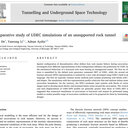The ArabidopsisTHADA homologue modulates TOR activity and cold acclimation: Genetic modulation of cold acclimation in Arabidposis.
الكلمات الدالة
نبذة مختصرة
Low temperature is one of the most important environmental factors that affect global survival of humans and animals and equally importantly the distribution of plants and crop productivity. Survival of metazoan cells under cold stress requires regulation of the sensor-kinase Target Of Rapamycin (TOR). TOR controls growth of eukaryotic cells by adjusting anabolic and catabolic metabolism. Previous studies identified the Thyroid Adenoma Associated (THADA) gene as the major effect locus by positive selection in the evolution of modern human adapted to cold. Here we investigate the role of THADA in TOR signaling and cold acclimation of plants. We applied BLAST searches and homology modeling to identify the AtTHADA (AT3G55160) in Arabidopsis thaliana as the highly probable orthologue protein. Reverse genetics approaches were combined with immunological detection of TOR activity and metabolite profiling to address the role of the TOR and THADA for growth regulation and cold acclimation. Depletion of the AtTHADA gene caused complete or partial loss of full-length mRNA, respectively, and significant retardation of growth under non-stressed conditions. Furthermore, depletion of AtTHADA caused hypersensitivity towards low-temperatures. Atthada displayed a lowered energy charge. This went along with decreased TOR activity, which offers a molecular explanation for the slow growth phenotype of Atthada. Finally, we used TOR RNAi lines to identify the de-regulation of TOR activity as one determinant for sensitivity towards low-temperatures. Taken together our results provide evidence for a conserved function of THADA in cold acclimation of eukaryotes and suggest that cold acclimation in plants requires regulation of TOR.


